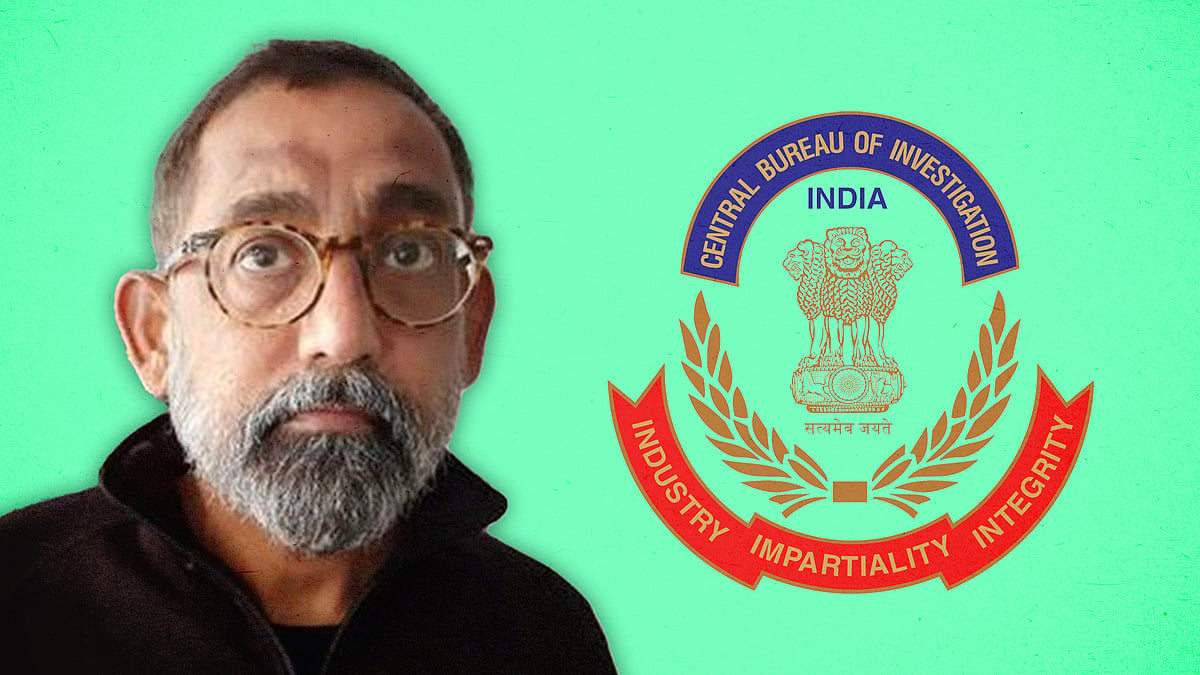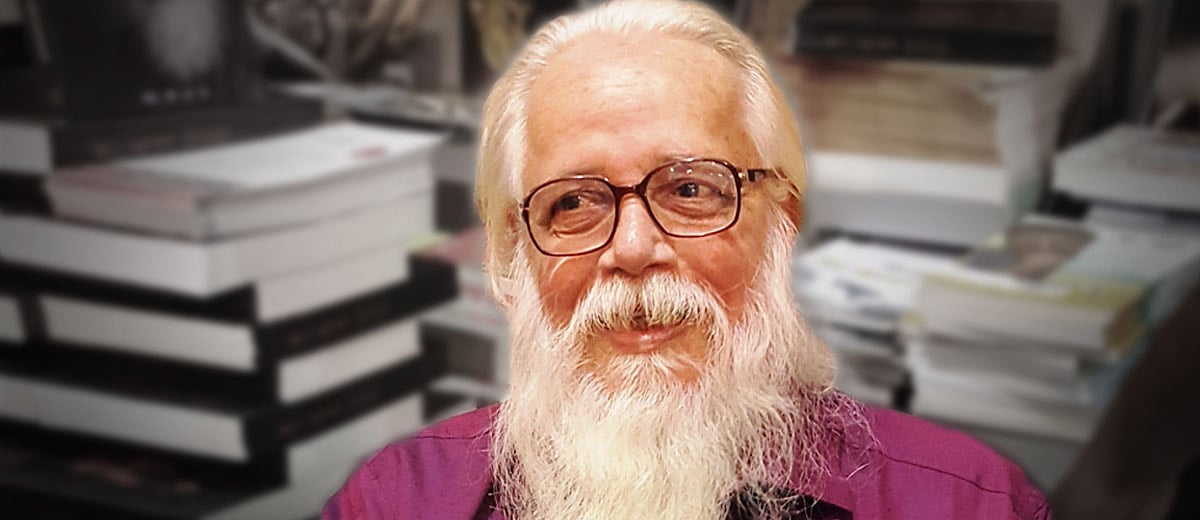Defence journalist held: Peers, acquaintances call him ‘harmless’, point to his ‘good stories’
Vivek Raghuvanshi was arrested this week in a case that was transferred to the CBI in December last year.
Days after the CBI arrested defence journalist Vivek Raghuvanshi for alleged espionage, journalists and experts who knew him have expressed shock. They described him as a simple man who was a familiar face at press conferences and the South Block, which houses the defence ministry.
Raghuvanshi, a freelance journalist writing on defence for more than three decades, was also working as a consultant to private defence manufacturers in India and used to prepare “assessments” based on open source information. One of his acquaintances told Newslaundry that he was under “a lot of stress” of late and had “health issues”.
Raghuvanshi is accused of “illegal collection of sensitive information including the minute details of the DRDO defence projects and their progress, sensitive details about the future procurement of Indian armed forces”. Raghuvanshi and his “associate” Ashish Pathak, a former Navy commander working with a private firm, were arrested on Tuesday under the Official Secrets Act – in a case that was transferred to the CBI from the Delhi Police special cell in December last year.
Raghuvanshi, a resident of Jaipur, has been the India correspondent for US-based magazine Defence News since 1993. The magazine tracks defence trade and procurement across the world, and is read in India mostly by journalists and experts.
Defence News, in an email reply to Newslaundry’s questionnaire, called Raghuvanshi “a journalist of integrity and the highest ethical standards” and sought his “immediate release”.
A senior defence journalist, who spoke on the condition of anonymity, said “nowadays, anybody and everybody could be picked up and lodged in jail under the Official Secrets Act”. “Vivek is the most harmless journalist. There are others who are far more dangerous and are left untouched. I am surprised by his arrest,” he said, adding that Raghuvanshi did not socialise much and was a “loner of sorts”.
Another journalist said Raghuvanshi was regular to press conferences and the South Block.
The CBI has alleged “the accused and his family members had received substantial amount from foreign sources”.
Calling the allegations “ridiculous”, military analyst and retired Air Force Jaguar pilot Vijainder K Thakur asked how else could Raghuvanshi be paid as he was working for a US-based magazine.
Thakur, who has known Raghuvanshi for a decade, said defence journalists are more vulnerable to be booked under the Official Secrets Act – “especially those who work for the foreign media”. He called defence journalism a treacherous terrain where journalists could be privy to sensitive information. “It’s very difficult to maintain a fine balance,” he said.
“He has written good stories. And Defence News is a reputed publication in the sector. It’s quite possible that the editor may have asked him the source of the story; be it a document or an official. He may have shared it for validation,” said Thakur, who writes for EurAsian Times, a digital news platform focusing on geopolitics and defence.
Defence journalists are often approached by foreign agents, and there is sometimes a risk of such calls leading to a “trap”. Thakur recalled how foreign agents had reached out to defence journalists to fish for information on Russia’s delay to supply the S-400 Triumf air defence missile system to India in the wake of the Ukraine war.
On March 2, last year, Raghuvanshi wrote how the Ukraine war could lead to delays in Russian supply of weapons, including S-400. “India is now gearing to counter the impact of new economic sanctions on Russia by the US and Europe that could hamper armaments and military spares supplies from Moscow,” read the article.
Mike Gruss, editor in chief of Sightline Media Group, which publishes Military Times and Defence News, told Newslaundry that the group was “alarmed by reports that Vivek is accused” by India’s government of “collecting and passing information to foreign intelligence agencies”.
“Sightline leaders have not seen evidence to substantiate these charges and repudiate any attacks on press freedom,” said Gruss, adding that Raghuvanshi was known for his “accurate reporting and fairness”.
His recent reports
Newslaundry has analysed two dozen reports by Raghuvanshi in the last one-and-a-half years. Most of the reports are based on press statements of various wings of the defence ministry, the defence minister’s tweets and budgetary allocations. He wrote on India-Russia defence deals, contracts, procurement and localisation of the sector.
The reports indicate that Raghuvanshi had reliable sources in all wings of the ministry.
His last article on May 5 was on the India-Russia agreement to cut payment delays for defence contracts, and locally manufacture Russian equipment and spare parts.
Raghuvanshi was first booked by the Delhi Police’s special cell on September 20 last year. In December, the case was transferred to the CBI.
Before the Delhi police case in 2022, he had written on how Indian penalties on foreign manufacturers, including French company Dassault Aviation, for delay in offset obligations will deter “foreign defense companies from seeking business in the country”. In August of that year, Raghuvanshi wrote that the ministry was preparing a fourth list of banned military material from foreign countries. Another article revealed that India had halted negotiations with Russia to acquire 10 Kamov Ka-31 airborne early warning helicopters for $520 million due to uncertainties born out of Russia’s invasion of Ukraine. He also wrote on the impact of Russian delay in supplying India with weapons, including the S-400 missile system.
The charges against him
The Delhi police’s special cell in its FIR accused Raghuvanshi of collecting and sharing “classified information” on defence projects with “intelligence agencies of foreign countries”. He and other unidentified persons were booked under section 3 (espionage) of the OS Act.
“As per the information, this is an international network in which some of the Indian journalists are supplying the aforementioned strategic/secret information with intelligence agencies of foreign enemy countries,” read the FIR. The case was transferred to the CBI on December 9.
Earlier this week, the CBI raided 15 locations at NCR and Delhi and seized 48 electronic devices. Raghuvanshi and Pathak were arrested on Tuesday night and produced before a CBI court which sent them to six days custody the following day, PTI reported.
“The scrutiny of devices recovered so far from the possession of accused also revealed that the accused was allegedly collecting confidential information related to India’s defence procurement from different sources and was in contact with several foreign entities/agents/persons, and that he had entered into contracts/agreements with several foreign entities for sharing of confidential information. It was also alleged that the accused and his family members had received substantial amount from foreign sources,” read the CBI statement.
 ‘Shared sensitive info with foreign intelligence’: CBI books freelance journalist for espionage
‘Shared sensitive info with foreign intelligence’: CBI books freelance journalist for espionage How the ISRO espionage scandal brought a CM down
How the ISRO espionage scandal brought a CM down